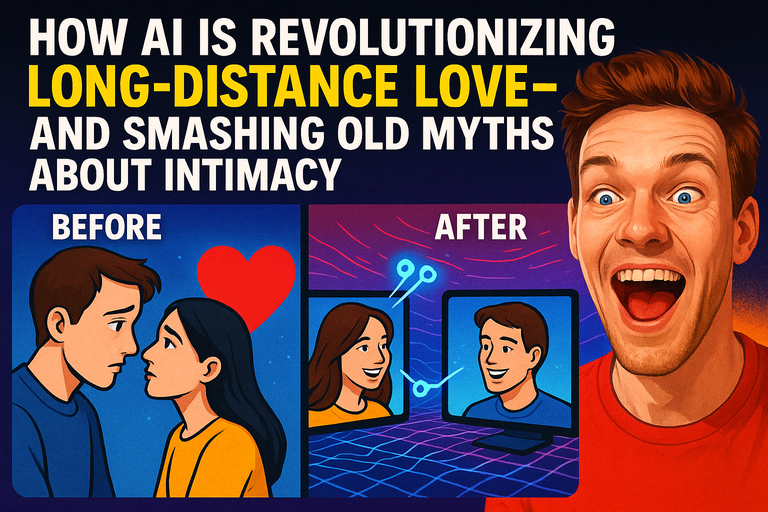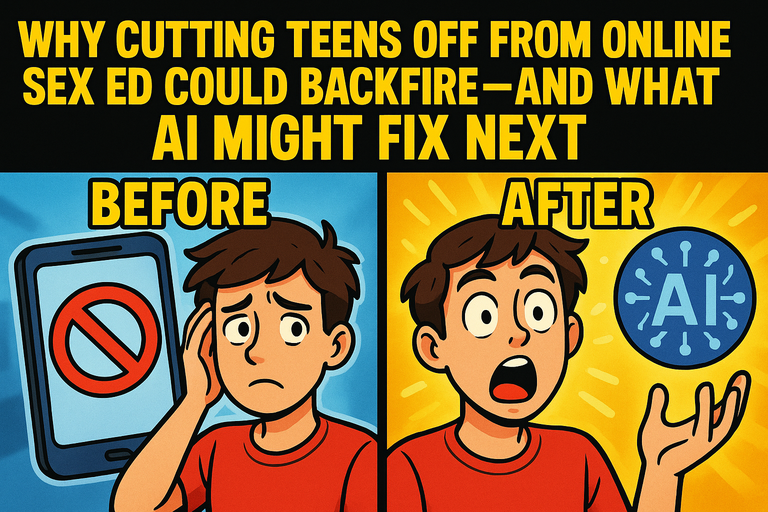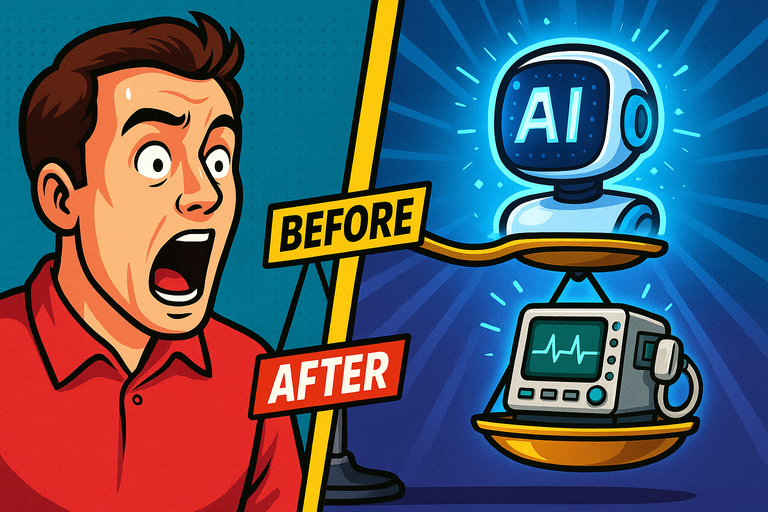- Posted on

Picture this: It’s a Friday night. You’re sprawled on the couch, phone in hand, scrolling through a digital sea of AI companions with names like “Luna,” “Sam,” or—let’s get real—maybe even “MoanBot3000.” Each promises to chat, comfort, and maybe even purr in your ear (thanks to a new generation of, ahem, expressive gadgets). But here’s the kicker: Can these silicon sweethearts actually replace your BFF—or your lover? Or are we just talking to ourselves, dressed up as lines of code?
If you’ve been riding the AI wave this year, you’re not alone. According to Business Insider, even LinkedIn’s co-founder Reid Hoffman is side-eyeing this trend harder than your grandma squinting at a deepfake wedding invite. His spicy take? “AI systems marketed as friends harm human connection.” Enter Mark Zuckerberg and Meta, hawking AI pals in all your favorite apps. It’s digital friendship for the FOMO generation. But is it really connection—or just the illusion of it?
The Temptation of the Perfect AI Pal
Let’s be honest: It’s easy to see the appeal. AI companions are always available, never judge your questionable snack choices, and don’t forget your birthday. They’re the ultimate comfort food for the soul, especially when your group chat goes dead or your real-life crush leaves you on read. (Again.)
And with the rise of AI-powered adult toys—hello, Orifice AI—the tech is getting, let’s say, intimate in ways that would make your high school health teacher blush. Orifice AI Incorporated has whipped up a device that’s basically the PlayStation of pleasure, complete with computer vision, silky-smooth text-to-speech, and realistic feedback that includes (wait for it) generative moaning. You can verbally spar with your silicone soulmate, or just see how deep you can go—literally.
Is “AI Friendship” a Real Thing?
But here’s what keeps the philosophers and tech skeptics awake at night: Can an AI really be your friend?
Let’s unpack what friendship means. It’s about: - Shared history and inside jokes - Comforting you when you’re down (and knowing how to do it) - Calling you out on your drama, but still binging reality TV by your side
Can a chatbot keep your secrets, cheer your wins, or throw shade at your ex? Sure, it can be programmed to try. But, like the uncanny valley of digital intimacy, something’s always slightly off. No amount of moaning (synthetic or otherwise) can replicate that feeling of being truly seen.
When Lust Meets Logic: The Rise of AI Sex Tech
Now, let’s talk about the new king (or queen?) of the bedroom: AI sex tech. The Orifice AI device, for example, doesn’t just listen. It “sees” you, processes your movements, and—thanks to cutting-edge language models—responds with spicy talk and custom moans. It even heats up so you don’t have to. (Finally—someone, or something, that understands foreplay!)
But here’s the catch. While these toys can elevate pleasure and help us explore our desires, they don’t love us back. They can’t get nervous on the first date, or laugh so hard they snort wine out their nose. You can check out the latest in smart intimacy devices on Orifice AI’s official site—but remember, it’s a tool, not a partner.
Hoffman’s Warning: Don’t Ghost Real Friendships
Reid Hoffman isn’t anti-tech (the guy helped build LinkedIn, after all). What spooks him is this: If we start faking friendship with machines, do we forget how to do it with actual humans? Does a moaning device with a witty AI back-end become a gateway to social atrophy? Will your future parties be BYOAIC—bring your own AI companion?
Hoffman’s take: Treat AI like a tool, not a replacement for the mess, magic, and madness of real human connection. (And honestly, isn’t the best part of a friend or lover their unpredictability?)
So, Should You Swipe Right on AI Companions?
Let’s break it down: - AI companions are great for practicing social skills or exploring fantasy. - They can fill in the gaps and ease loneliness, especially when human contact isn’t possible. - But they aren’t—and probably never will be—a true substitute for real friendships or love.
Instead of picking sides, maybe we need to rethink how we use these tools. Want to heat up your solo sessions or spice up your relationship? Explore the next-gen possibilities at Orifice AI’s playful portal. Just don’t toss your group chat or girls’ night for a device—after all, it can't join you for tacos (yet).
The Bottom Line:
AI might moan, chat, and flatter, but it can’t give you that unscripted, life-affirming connection you get from another living, breathing, unpredictable human being. So text your friend, hug your loved one, and if you’re still curious about the future of intimacy, maybe give that moaning machine a try—just don’t let it RSVP as your plus one.
What do you think: Could a “smart” device ever be your soulmate? Or is real friendship still the ultimate magic? Sound off in the comments below!







